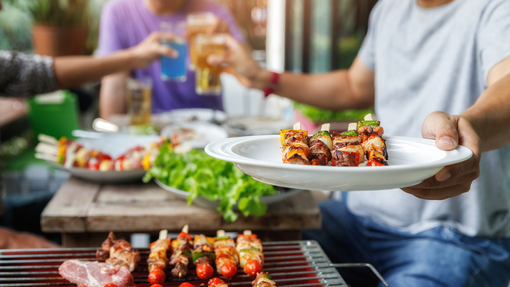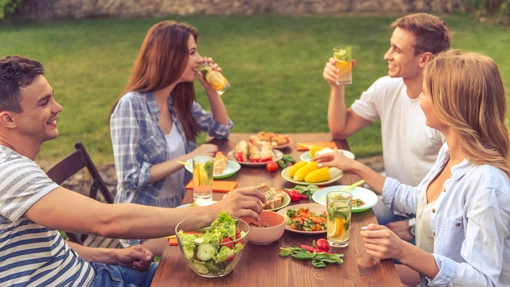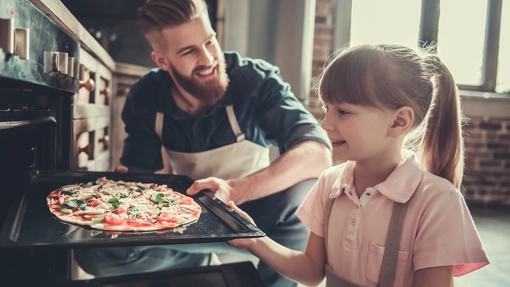
How to save money on food
Planning and preparation
Good planning is key to saving money on food! Spending a little time thinking about your food budget, and then allocating time each week for a spot of meal planning, is a great way to stay in control of your shopping. Good meal planning starts with using up what you’ve got already – including leftovers – so be sure to check the fridge, freezer and cupboards to see what’s in there first.
When you know what most of the meals you’ll be eating each day will be, you’ll know what ingredients you need. As well as bearing in mind what’s in the freezer, remember to factor any evenings you’re likely to be eating out or treating yourself to a takeaway, if your budget stretches to this. For the meals you’re cooking from scratch, you can use portion planning to help you work out the exact quantities needed, and from there write a shopping list that you can follow as you shop. That could be a note on your phone or a paper list – whichever works best for you.
Staying in control of your shopping
You may have heard the advice on not going shopping when you’re hungry, and it’s a good one! But there are a few other ways to keep control over how much you spend, starting with crossing items off your shopping list to keep yourself focused on buying only what’s on the list. If you’re using a note on your phone, you could tick off the checkboxes as you go along.
Some people find it easier to stay in control by doing food shopping online, whether for delivery or collection in store. This makes it easy to search for exactly what you need, compare prices and find the cheapest options – such as budget-friendly own brand products. There’s also less room for temptation when you’re not passing aisle after aisle of treats that aren’t on your carefully prepared list! Just be careful not to simply click ‘order again’ – be sure to check through and make sure you’re ordering what you need for this particular week.
If online shopping isn’t an option, try using the ‘scan as you shop’ facility, if your supermarket has one. This lets you see exactly how much you’re spending as you go along, so you’ll know when you’ve reached your budget.
If you’re in the supermarket and you spot what seems to be a bargain (3 for 2, buy one get one free and so on), be sure to sense check deals before loading your trolley with things that weren’t on your list. These deals can make us buy more food than we need and may end up being binned – money down the drain unless you intend to incorporate it into one of the meals on your plan or freeze it for the future.
Storing food so it lasts longer
You’d be surprised how much longer food will last when it’s stored correctly. This makes it easier to eat everything before it goes off, which of course means not having to buy more. To find out how to store food items correctly, search our handy food and recipes hub.
One of the simplest things you can do to keep food fresher for longer is to store most fresh produce in the fridge. Except for bananas, pineapples and onions, fresh produce lasts a lot longer in the fridge with the temperature set to 5 degrees Celsius or lower. Read more tips on foods you’ve been storing in the wrong place.
It’s also important to keep tabs on your fresh food and make sure you’re always taking out what needs eating first. To help with this, use a rotation system with the freshest food at the back, or devote a shelf of your fridge to ‘eat me first’ foods approaching their use-by dates. If you won’t use it in time, pop it in the freezer so you can eat it another time – most leftovers can go in there too!
Making the food you buy go further
Finally, you can save money on food by making the most of what you buy. Aim to eat every edible morsel – for example, keeping the skins on carrots and potatoes (they’re also full of nutrients!), and chopping up the outer leaves of cauliflowers to include in your cauliflower cheese. The leftover bones from your Sunday roast can be boiled up with herbs and any veg that’s past its best to make your own stock, which you can then use to flavour soups and casseroles.
The great thing about saving money on food is that it has another huge benefit: it stops food waste in its tracks. It’s a win for the planet as well as your purse! You can read even more great tips in our page on getting into good food habits.




